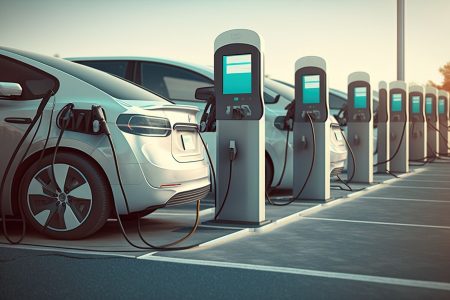New Delhi: The Ministry of Heavy Industries (MHI) in India has achieved a milestone in promoting electric vehicles (EVs) with the successful operation of 12,146 public EV charging stations across the country. This significant progress is part of the government’s consistent efforts to encourage the adoption of electric vehicles under the Faster Adoption and Manufacturing of Hybrid and Electric Vehicles (FAME-II) scheme.
The FAME-II scheme includes financial support, such as subsidies, for setting up public charging infrastructure to boost the confidence of EV users. The Ministry of Power has also played a crucial role in expediting the deployment of public EV charging infrastructure through various initiatives.
Key initiatives by the Ministry of Power include:
- Guidelines & Standards for Charging Infrastructure: The ministry issued guidelines in January 2022 and amended them in November 2022 and April 2023. These guidelines enable EV owners to charge their vehicles at their residences or offices using existing electricity connections. They prescribe a revenue-sharing model for providing land at promotional rates for public charging stations and ensure timely electricity connections for these stations. The guidelines also specify a single-part EV tariff for public charging stations and set ceiling limits for electricity charges during slow AC charging and DC fast charging.
- Green Energy Open Access Rules, 2022: This initiative aims to accelerate renewable energy adoption by ensuring access to affordable, reliable, sustainable, and green energy.
- “GO ELECTRIC” Campaign: Launched in February 2021, this campaign aims to create awareness about the benefits of electric vehicles, EV charging infrastructure, and electric cooking in India.
According to the Ministry of Power, the operational public EV charging stations align with the evolving composition of electric vehicles, running patterns, terrain, geography, urbanization patterns, and EV technology. The charging infrastructure requirement is considered dynamic, with a wide range of 1 charging point per 20 EVs to 1 charging point per 150 EVs, depending on these factors.
This accomplishment reflects the government’s commitment to fostering a sustainable and environmentally friendly transportation ecosystem in India. The growing network of public EV charging stations is a positive step toward encouraging more people to adopt electric vehicles and contribute to a cleaner and greener future.

